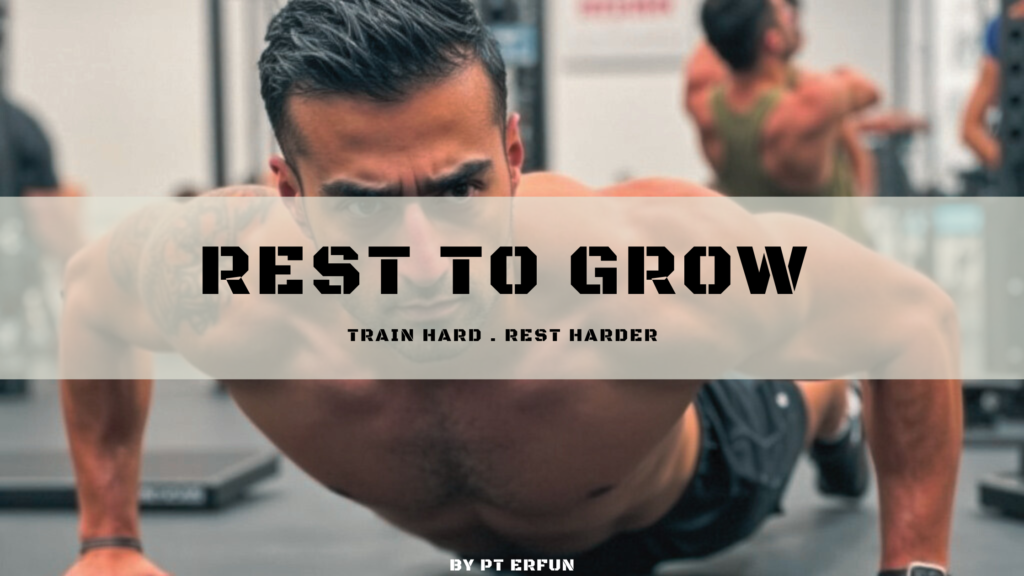When it comes to fitness, most people focus on training hard—lifting heavier, running longer, pushing through pain. But there’s a hidden key to making real progress in strength, endurance, and body transformation: recovery. Recovery days are often underestimated, yet they are just as essential as the days you hit the gym.
1. Muscles Grow When You Rest, Not When You Train
Exercise creates microtears in your muscle fibers. These tears are necessary for muscle growth, but the actual repair and rebuilding process happens during rest—especially during deep sleep or scheduled recovery days. Without enough time to recover, you risk plateauing or even losing strength.
2. Prevents Overtraining and Injury
Working out intensely every day without a break can lead to overtraining syndrome. Symptoms include chronic fatigue, decreased performance, mood swings, and frequent injuries. Strategic recovery days reduce the risk of strains, stress fractures, and burnout, keeping you consistent in the long run.
3. Supports Hormonal Balance
Rest plays a huge role in regulating hormones like cortisol (the stress hormone) and testosterone (critical for muscle building). High-intensity workouts elevate cortisol levels, but recovery days help bring them back down, reducing inflammation and promoting overall hormonal balance.
4. Improves Mental Health and Motivation
Rest days aren’t just about physical repair—they’re also a mental reset. Giving your mind a break from the pressure of constant performance can improve focus, motivation, and overall mental well-being. You’re more likely to come back stronger and more determined.
5. Enhances Performance
Athletes and professional trainers know that rest improves performance. Whether it’s strength, speed, or flexibility, allowing your body to fully recharge makes your next session more effective. You’ll lift heavier, run faster, and reduce the risk of sloppy form that comes from fatigue.
6. Better Sleep and Recovery Quality
When your nervous system is overloaded with nonstop workouts, it can disrupt sleep quality. Recovery days help reset the body’s systems, encouraging deeper, more restorative sleep—which in turn accelerates muscle repair and overall recovery.
How to Structure Recovery Days
Recovery doesn’t always mean lying on the couch all day (though that’s okay too!). Here are some smart ways to spend recovery days:
- Active recovery: Light activities like walking, swimming, yoga, or stretching
- Foam rolling and mobility work: Helps release tension and improve blood flow
- Hydration and nutrition: Fuel your body with clean, balanced meals and plenty of water
- Sleep: Aim for 7–9 hours of quality sleep per night
- Mindfulness or meditation: Reduce mental stress and support overall well-being
Final Thoughts
Recovery is not a sign of weakness—it’s a critical part of getting stronger. If you skip rest, you’re skipping progress. By respecting your body’s need for recovery, you’re setting yourself up for long-term success, fewer injuries, and sustainable results.

